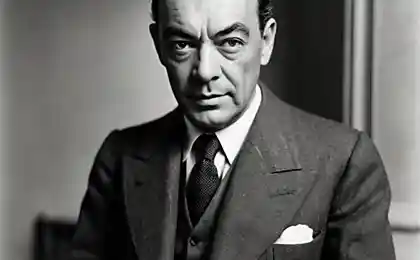179
Benedict Spinoza: Freedom from false desires and the beginning of a new life

In today’s world, where every day we are faced with a flood of artificial desires imposed by advertising, social networks and public stereotypes, the philosophy of Benedict Spinoza becomes especially relevant. This eminent thinker of the seventeenth century proposed a revolutionary approach to understanding human nature that could radically change our attitude to life and help us find true freedom.
All things which a man avoids or desires are good or bad only in so far as they affect his mind.
Who is Benedict Spinoza and why are his ideas important today?
Benedict Spinoza (1632-1677) was a Dutch philosopher of Jewish descent who revolutionized the understanding of human nature. His main work “Ethics” is a geometrically constructed system of views on the world, where each statement logically follows from the previous one.
Spinoza lived in an age when religious dogmas and prejudices defined the lives of most people. His boldness in criticizing traditional views led to excommunication from the Jewish community of Amsterdam, but it was this that enabled him to create a philosophy that was several centuries ahead of its time.
The Modernity of Spinoza's Ideas
In the twenty-first century, we face the problems that Spinoza foresaw: dependence on others’ opinions, imposed standards of success, emotional instability due to external factors. His philosophy offers concrete tools to address these challenges.
The Anatomy of False Desire: How the Mind Creates Illusions

Spinoza distinguished three types of knowledge: sensual (based on emotions and impressions), rational (based on logic) and intuitive (direct comprehension of truth). Most of our desires are formed on the first, most primitive level.
The mechanism of formation of false desires
According to Spinoza, our desires are not innate or natural. They are formed under the influence of external factors: social environment, cultural norms, casual encounters and impressions. A person begins to desire what he sees in others, without questioning whether it will really bring him happiness.
Take a piece of paper and write down 10 of your strongest desires. For everyone, ask yourself the questions: “Where did this desire come from?”, “Who or what influenced its formation?”, “Will its fulfillment make me happier?”, “How do I feel when I imagine life without this desire?” ?
Emotional slavery as a result of false desires
Spinoza used the term passion to refer to emotions that make a person dependent on external circumstances. When we desire something without understanding the true nature of that desire, we become slaves to our passions. The joy of getting what you want is short-lived, and the sadness of failure can last for months.
A person who is guided by fear and does good to avoid evil is not guided by reason.
The Way to Freedom through Understanding the Nature of Things
Spinoza proposed a radical way to free oneself from false desires: to understand their nature. He believed that knowing the causes of our emotions and desires automatically weakens their power over us.
The principle of adequate ideas
The central concept of Spinoza’s philosophy is “adequate ideas.” It is knowledge that corresponds to reality and helps us see things as they really are. When we understand the true nature of the object of our desire, we cease to ascribe magical properties to it.
Choose one of your strong desires and analyze its components. For example, a desire to buy an expensive car may consist of a need for transportation (the rational part), a desire to impress others (the social part), and a fantasy about how your life will change (the emotional part). Once you understand the structure of desire, you will be able to satisfy its rational part without becoming dependent on other components.
Practice of contemplation and reflection
Spinoza recommended regular practice of thinking about the nature of one’s emotions and desires. This is not passive observation, but the active work of the mind to understand cause and effect in our mental life.

Specific Techniques for Liberating False Desire
1. The "Temporary Perspective" technique
When you feel a strong desire, imagine yourself in 5, 10, 20 years. Will this desire still be relevant? Will his performance bring long-term happiness? Spinoza believed that the view “from the angle of eternity” helps to separate the important from the secondary.
2. Alternative scenarios method
Spinoza suggested considering each situation from different points of view. If you’re dreaming of a particular career, think about how your life might have evolved differently. It helps to see that there are many paths to happiness.
3. Practice "Joys of understanding"
Spinoza distinguished two types of joy: the joy of possession and the joy of understanding. The first makes us dependent on external things, the second liberates us. Try to find pleasure in the process of knowing yourself and the world, not just in achieving goals.
How to Start a New Life: A Practical Guide
Stage 1: Life inventory
Start with an honest analysis of your current life. Which areas are of greatest concern? Where do you feel unfree? Spinoza insisted that self-knowledge must be ruthlessly honest.
Step 2: Identifying patterns
Try to find recurring patterns in your desires and disappointments. Perhaps you are constantly looking for something new to avoid boredom, or seeking recognition to compensate for your insecurity.
During the month keep a diary, where write down your strong emotions and desires. For each entry, note: time, circumstances, intensity (on a scale of 1 to 10), the alleged cause. After a month, analyze the records and find patterns.
Stage 3: Formation of new habits of thinking
Spinoza believed that we can change our nature by forming new habits. Start small: Whenever a strong desire arises, ask yourself what its true nature is.
Stage 4: Development of intuitive knowledge
The highest form of knowledge, according to Spinoza, is the intuitive comprehension of truth. It is a state where we understand things directly, without reasoning. Develop this quality through meditation, creativity, and deep learning about what interests you.
Conclusion: Freedom as a Natural State
Spinoza’s philosophy shows us that freedom is not the absence of limitations, but an understanding of their nature. When we realize that most of our desires are externally imposed, we are able to choose which ones are truly worth our attention.
The path to freedom from false desires requires courage and constant work on oneself. But the result is worth it: a life based on understanding, not illusions, brings much more joy and satisfaction.
Glossary
Adequate Ideas – Knowledge that corresponds exactly to reality and helps to understand the true nature of things
Affects are emotional states that increase or decrease our ability to act.
Determinism is the philosophical doctrine that all events have causes and follow natural laws.
Intuitive cognition is the highest form of knowledge in which truth is grasped directly, without reasoning.
Conatus is the desire of each creature to preserve its being and develop
Passions are emotions that make a person dependent on external circumstances.
Substance, in the philosophy of Spinoza, is the single basis of everything that exists, which can be called God or Nature.
Ethics is the teaching of how to live rightly and achieve happiness through understanding one’s nature.
Shelby Greene: The Anatomy of the Success of the Modern Model
9 Truths to Understand to Find Your Unique Style























